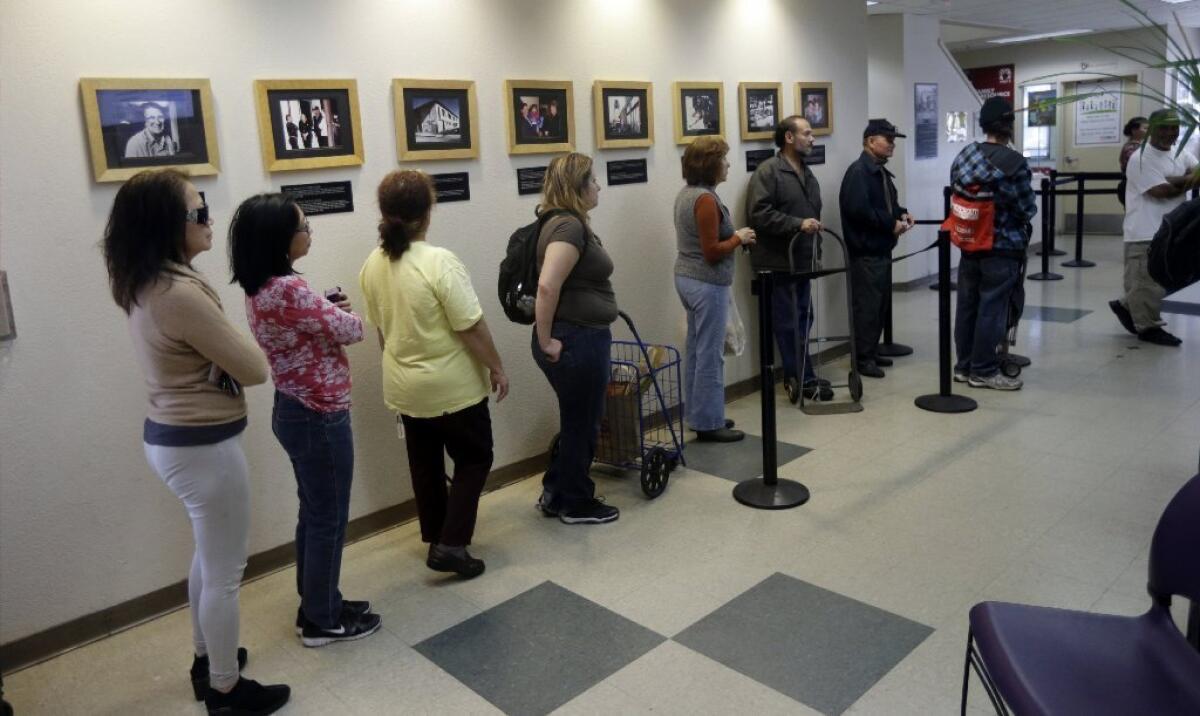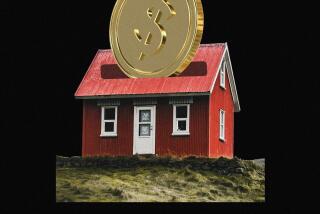Fed survey: 40% of households show signs of financial stress

- Share via
Four out of 10 American households were straining financially five years after the Great Recession -- many struggling with tight credit, education debt and retirement issues, according to a new Federal Reserve survey of consumers.
The Fed study shows that the economy has made progress to the point where a majority of U.S. households said they were “living comfortably” or doing OK financially.
But almost 40% reported that their families were “just getting by” or struggling to do so. And more people reported that their financial situation was worse rather than better off compared to five years earlier. The survey was taken in September 2013.
Overall, the Fed’s findings, reported Thursday, are consistent with many other studies and data depicting the deep and lingering effects of the 2007-09 recession. The recovery has been slow and uneven, skewed toward the wealthy.
“It just shows that the recovery is not delivering for a huge chunk of Americans,” said Heidi Shierholz, an economist at the liberal-leaning Economic Policy Institute.
Because the Fed report captured a snapshot of households last fall, no comparable data from previous years was available to assess changes over time. The central bank conducts a far more extensive survey of consumer finances every three years, but the results of the most recent one, for 2013, won’t be released until early next year.
Still, this latest snapshot, which the Fed said was aimed at monitoring the recovery and risks to financial stability, adds to the understanding of the severity of the Great Recession’s effect on households and individuals.
The survey found, for example, that 15% of those who had retired since 2008 had retired earlier than planned because of the downturn. Only 4% said they had retired later than expected. Based on demographics, that translates into roughly 2 million more people retiring since 2008 than if the recession had not occurred.
“This suggests that some of the folks who dropped out of the labor force during the recession will not be returning,” said Scott Hoyt, an economist at Moody’s Analytics.
For most Americans, homes are their primary assets. But of those who had owned their home for at least five years, 45% said that the value of their property was lower than in 2008, while 27% believed that it was higher.
The recession has turned more Americans into renters, yet the survey suggests that’s not because they aren’t interested in being homeowners. The most common reasons people gave for renting rather than buying a home were because they couldn’t afford a down payment or couldn’t qualify for a mortgage.
On loans in general, the survey showed that about one-third of consumers were turned down or given less credit than they had sought. An additional 19% reported putting off applying because they figured that they would be rejected.
More recently, however, there are indications that lenders are loosening up. Separately, the Fed reported Thursday that consumer borrowing rose in June at a solid 6.5% annual pace, thanks mostly to gains in auto and student loans.
About one-fourth of households have education debt of some kind, according to the survey. The average amount was $27,840 -- a hefty amount that left nearly one-fifth of the borrowers behind in payments or facing collections.
Financial strains also were evident in health spending: About one-third of respondents said they had put off medical care in the previous 12 months because they could not afford it.
And although more than half of households said they were socking away some of their income, less than 40% had a rainy-day fund to cover expenses for three months.
Follow me on Twitter at @dleelatimes
More to Read
Inside the business of entertainment
The Wide Shot brings you news, analysis and insights on everything from streaming wars to production — and what it all means for the future.
You may occasionally receive promotional content from the Los Angeles Times.








